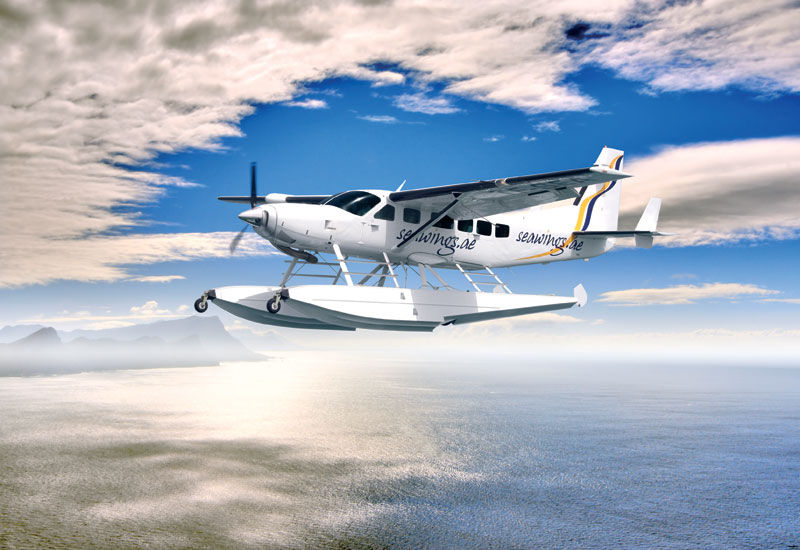Plummeting rates and expectations of a quiet summer for Gulf tourism have raised concerns about the knock-on effect for smaller emirates such as Fujairah. But with a new tourism authority, upcoming hotels taking shape and a ‘can-do’ attitude from existing resorts, the destination is quietly wooing a range of markets. Kathi Everden reports
There’s a laid back atmosphere in Fujairah — maybe it’s something in the Indian Ocean waters. And this lassitude has at times extended to its tourism development, with grandiose plans inevitably dissipating into piecemeal projects that eke out the frustratingly slow process of establishing the emirate as a player in the global tourism stakes.
For 2009, this slow progress has for once been justified, as the current hotels ride out the recession without too much local competition to eat even farther into rate offerings. And, encouragingly, the government has upgraded its investment in tourism promotion with the summer launch of the Fujairah Tourism & Archaeological Authority (FTAA), taking over and augmenting the roles of the previous archaeology and heritage department and the Fujairah Tourism Bureau, the latter having become becalmed in the waters of exhibition participation and map production.
Already, FTAA director HE Saeed Abdullah Al Samahi has been talking to Sharjah tourism authorities about a co-operation strategy to initially boost domestic tourism (the enclave of Khor Fakkan on the Fujairah coast actually belongs to the emirate of Sharjah), with the establishment decree stipulating that the FTAA should “encourage, develop and regulate tourism in the emirate, and devise a tourism plan guided by internationally recognised standards”.
It’s a move welcomed by existing partners in the tourism industry — such as the hotels and resorts, who had previously had to virtually go it alone with their promotion strategy, outside of the regular WTM/ATM/ITB circuit.
The move is also timely, given the resorts slowly rising along the coast, completion of which in the next two years will give Fujairah a respectable roll-call of international names to widen its appeal and, more importantly, its recognition factor.
Al Aqah will see a 291-room InterContinental by end 2010 and a 320-room Radisson Blu scheduled for early 2011; there’s a 117-room Angsana planned along the coast; and the area is also location for the Mina Al Fajer development, comprising a marina, 60 villas and 80 apartments plus associated infrastructure and a 137-room Fairmont, again opening early 2011.
In Fujairah town, Ibis, Novotel and Rotana’s Arjaan will add to the room count within the year, emphasising the commercial expansion of the emirate in tandem with tourism projects, while Australian chain Rendezvous will debut in the Gulf next summer with a 217-room Rendezvous Fujairah.

Advertisement
“The emerging nature of the emirate and the quality of the hotel development led us to start (expansion) in Fujairah,” said senior vice president sales and marketing Michael Meade. “The hotel will be integrated in to the emirate’s largest mall and we will target corporate, government and online visitors.”
Meanwhile, existing hotels have refurbished and expanded to capitalise on increased business — Al Diar Siji recently opened its 79-unit hotel apartment property offering gym, pool, restaurant and business facilities, while Hilton has undergone a total refurbishment.
According to Siji sales and marketing director Shankar Bharadwaj, regional GCC business is holding up and corporate meetings is a growth area that should enable the hotel to maintain occupancies.
“The new hotel apartments also help fulfil the emerging needs of the market, and we are planning sequential marketing to tap in to all market segments,” he said.
Doyen of the pack, the Fujairah Hilton is reporting 90% occupancy for the first half of 2009, with leisure increasing as well as corporate business, according to Essam Abouda, regional vice president operations for Hilton Hotels. “Our priority is to reintroduce the new-look resort and showcase our updated business and leisure facilities to local and international markets,” he said.
“Even in the current downturn, we are enjoying healthy business as the only international resort within Fujairah city centre, with private beach and sea-views, and a perfect location for small meetings and team-building exercises — where companies can mix business with pleasure.”
It’s a philosophy that is equally applicable up the road at Al Aqah, where existing resorts are extending their product offering to counteract seasonality among prime European leisure markets.
“As the current year is quite challenging, we are trying to be as creative as possible and take a proactive approach to new business opportunities,” clarified JAL Hotel Fujairah general manager Christian Rainalter. “We are enlarging our platform in the international leisure segment to target new feeder markets, promoting a gourmet resort and adding 26 new suites that will be attractive for the regional family market — these will have one to three bedrooms.”
In addition, Rainalter noted that the opening of the JAL Tower Dubai early in 2010 would offer up potential for combination city and beach stays.









 Search our database of more than 2,700 industry companies
Search our database of more than 2,700 industry companies









